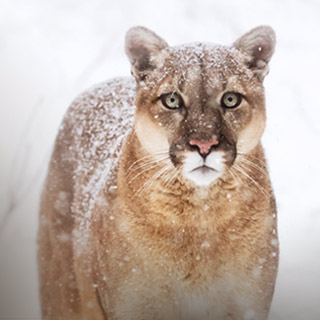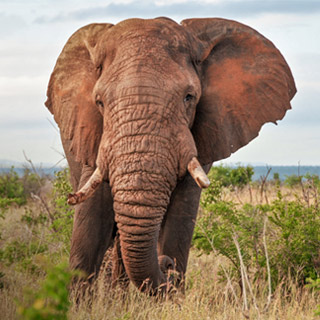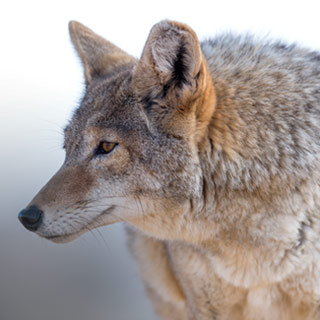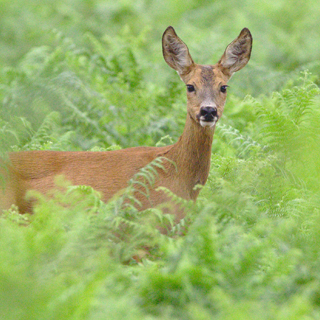AWI seeks to reduce the detrimental impacts of human activities on wild terrestrial animals. We work to foster humane, nonlethal, science-based solutions to conflicts with wildlife, protect threatened and endangered species and their habitats, and restrict global wildlife trade.
We share our world with an amazing array of animals, including millions of terrestrial species inhabiting the Earth’s forests, grasslands, tundra, and deserts. Each species is a vital strand within the intricate, interconnected web that sustains life on our planet. Many human activities, however, are having devastating effects on wildlife populations. Climate change, unchecked development, unsustainable agricultural practices, and pollution destroy and degrade habitats. Wild animals suffer from cruel and irresponsible hunting, trapping, and poisoning; capture for commercial trade; vehicle strikes; and the introduction of invasive species and novel diseases. AWI’s Terrestrial Wildlife Program works at local, state, national, and international levels to safeguard terrestrial wildlife from these threats.
AWI promotes humane solutions to human-wildlife conflicts, while opposing management methods that are cruel, unnecessary, and not based on sound science. We work to ban wildlife killing contests, reform the USDA Wildlife Services program, end the use of the nonselective and highly destructive steel-jaw leghold traps and chemical poisons, and promote coexistence with carnivores, bears, beavers, deer, and birds. AWI also encourages research into humane, nonlethal wildlife management through our Christine Stevens Wildlife Award.
Invoking the Endangered Species Act (ESA), we fight to save threatened and endangered species—including red wolves, gray wolves, Hawaiian honeycreepers, elephants, and pygmy three-toed sloths—and to protect their habitats. We work to fend off congressional and administrative attempts to weaken the ESA and seek sufficient funding to fully realize the law’s protective potential.
AWI works to prevent the commercial exploitation of wild animals by monitoring and contesting unsustainable and inhumane trade in wildlife. We seek bans against the keeping of wild animals as pets, and we participate in meetings of the Convention on International Trade in Endan¬gered Species of Wild Fauna and Flora (CITES) to help ensure that international trade does not drive species toward extinction.
Although wild animals face extensive threats, there are many actions that each of us can take to protect wildlife. Learn more about how to help wildlife by clicking the button below.





